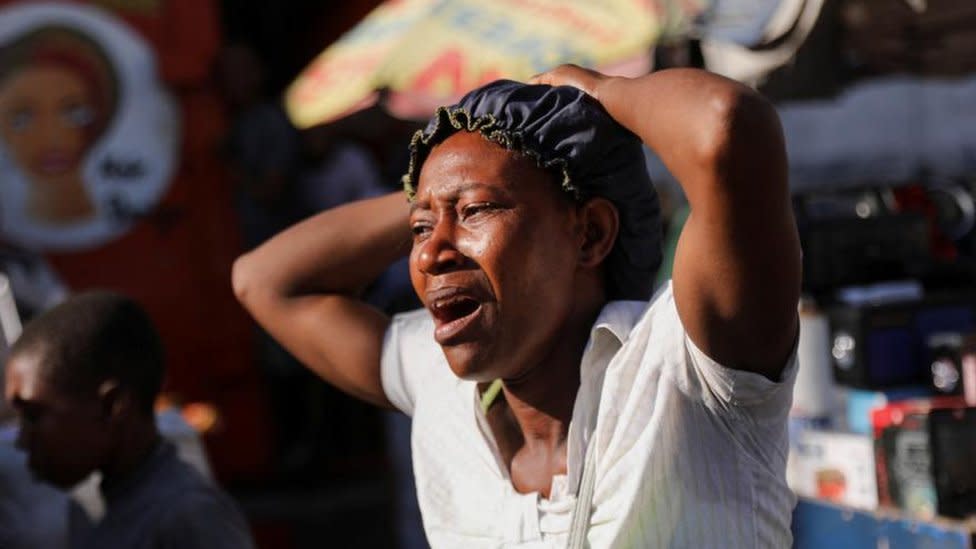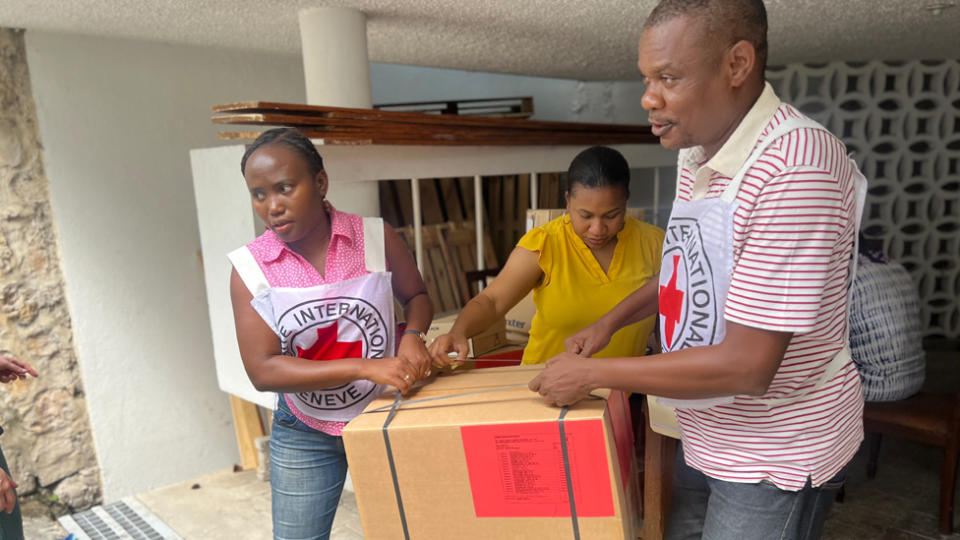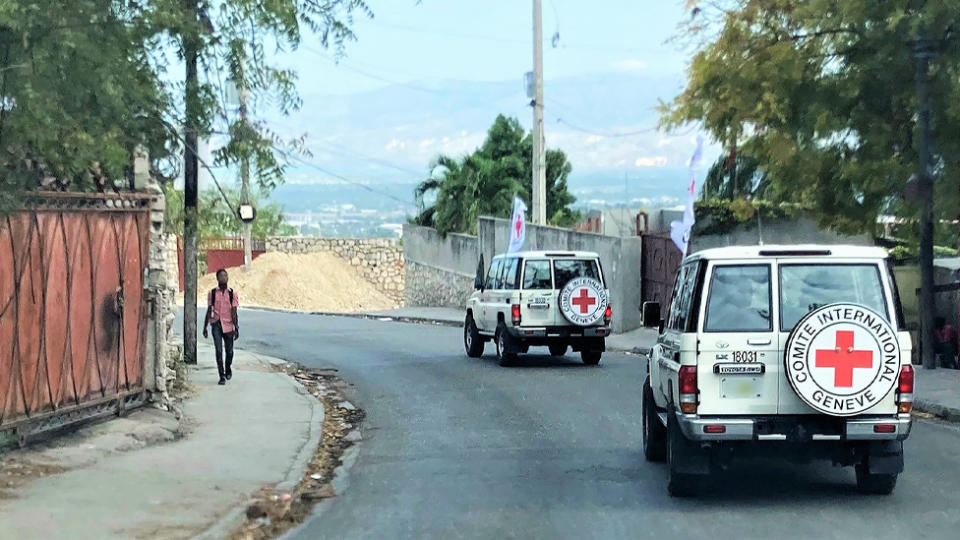Haiti's children caught in 'cataclysm' of gang violence

A new report by the UN describes the "outrageous practices" used by gangs in Haiti to brutalise, punish and control the civilian population.
It says that the gangs, which are estimated to control more than 80% of the capital, Port-au-Prince, recruit and abuse children, sometimes killing those who try to escape.
UN Human Rights chief Volker Türk chief said the situation was "cataclysmic".
He warned that weapons continue to pour into the country.
Warning: Some readers may find the details in this article distressing.
The report published on Thursday found that there had been a significant increase in armed violence caused by criminal gangs in the five months leading up to March.
Gangs used sexual violence in particular to spread fear in areas where they fought for control, it says: "During gang attacks, several women and girls have been subjected to rape, including collective rape, in their homes, often after having witnessed the killing of their husbands."
It adds that some of the rape victims had been mutilated or killed after the attacks.
According to the report, Haiti's armed criminal gangs also inflicted violence on children.
The victim in one particular incident was a three-month-old baby while in a surge of violence in an area of the capital previously considered relatively safe, entire families were burned alive in their homes.
The report focussed in particular on the months from September 2023 to the end of February. It found that armed violence caused by criminal gangs had "significantly increased in intensity" and the gangs had expanded their geographic reach.

Speaking to the BBC on Wednesday, the head of the International Committee of the Red Cross (ICRC) delegation for Haiti, Marisela Silva, said that almost 90% of Port-au-Prince, the capital, was now controlled by or under the influence of armed groups.
Ms Silva described how there had been a shift in the violence in recent weeks as rival armed groups appeared to have united and were now attacking the police rather than each other.
She warned that the population was caught in the crossfire.
With so much of the capital under the control of armed groups, access to emergency services has become almost non-existent.
"There are only two ambulances that are able to circulate in the proximity of the areas affected by the armed violence," she said.
Aid operations in the capital have also been hampered by ambushes along key access routes.
Ms Silva said the ICRC had managed to access its medical supplies after "a very complex operation that included dialogue with various armed groups".

"We need to be able to bring what is needed to those in the field," she stressed, recognising that even though the ICRC's neutral and impartial approach had succeeded in building trust it was not always possible to gain access to areas controlled by the armed groups.
"We don't have armed protection, our only way of preventing security incidents is through a dialogue with all actors," Ms Silva said.
The Haiti delegation head said that she was worried the humanitarian situation in Haiti could deteriorate even further as more and more people are displaced and struggle to access safe drinking water, food and even the most basic health services.
"Haiti is prone to epidemics, such as cholera. If there is no safe water, if there is no minimum hygiene, then there is a risk of that," she warned.


